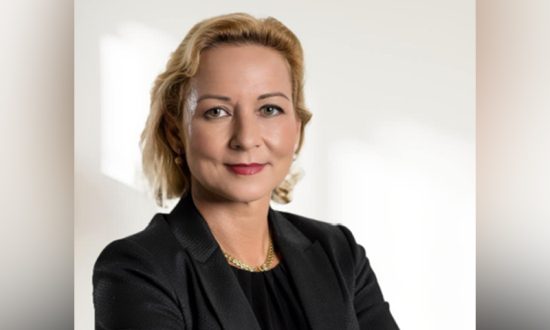Dr. Ingrid Vasiliu-Feltes is a healthcare executive, futurist and globalist who is highly dedicated to digital and ethics advocacy. She is a Forbes Business Council member, digital strategist, passionate educator, and entrepreneurship ecosystem builder, known as an expert speaker, board advisor and consultant. Throughout her career, she has received several awards for excellence in research, teaching or leadership and is ranked as a global thought leader for Quantum Technology, AI, Privacy, Digital Twins, Health Tech, Ecosystem Building. Additionally, she serves as an Expert Advisor to the EU Blockchain Observatory Forum and was appointed to the Board of Advisors for several organizations. Her academic tenure was followed by several executive leadership roles, and she holds numerous executive certifications from Harvard, MIT, Stanford.
As highlighted by numerous international organizations including the United Nations, the recent global crises, such as the pandemic, the climate emergency and war conflicts, have shown the positive difference women’s leadership and decision-making can make in key leadership roles across all domains ranging from government, business, and the not-for-profit arenas. At the same time, we are currently witnessing an accelerated adoption of frontier technologies and the transition from web 2.0 to web 3.0. This next world wide web iteration is uniquely poised to trigger the next industrial revolution. Women must be an integral part of the transition from the 4th to the 5th, as they represent 49% of the world global population, and the majority workforce in several domains such as education, healthcare, and social work.
With the transition toward the next generation internet called web 3.0 and the birth of a new digital economy powered by converging deep tech, women have a unique opportunity to turn a long-standing gender divide into an era of opportunity. A 2022 women in the workforce report published by McKinsey highlights how the pandemic has changed what women want from their companies, including the growing importance of opportunity, flexibility, employee well-being, and diversity, equity, and inclusion.
The rise of social entrepreneurship, as well as novel creator- and gig economies can be powerful catalysts for future generations of women that are well prepared and empowered to take full advantage of this new era. By designing novel education systems, novel governance models, business models, novel financial instruments, and novel talent management solutions that reduce the gender divide we can change the existing paradigm by offering future generations a more inclusive, diverse, and equitable global business and entrepreneurship ecosystem.
So how could women achieve this paradigm change? I would like to propose a strategy centered around EDUCATION, EXCELLENCE, and an ECOSYSTEM APPROACH (the 3 Es).
Education can bridge the existing digital and financial divide. Web 3.0 represents a new opportunity to disrupt the education landscape and pave the way for the future global workforce. Web 3.0-relevant education must cover the full life span, from young girls to women currently enrolled in the workforce. Aiming for excellence in the web 3.0 era will not only bridge the existing deep tech divide but can also offer an opportunity to lead and serve as role models. Finding a niche area and excelling in delivering highly sought-after skills cab ne a powerful conduit to attain a competitive advantage in the fast paced, deep tech- infused web 3.0 powered era. However, perhaps the most important driver of success is an ecosystem perspective, which can be generated by embracing an abundance mindset and reconfiguring risk-aversion to an exponential thinking style.
Women Leadership in the web 3.0 will certainly face numerous challenges, such as cultural, religious, economic, and socio-political. However, developing a complex portfolio of skills and management methodologies such as design thinking can be a game-changer. Honing their financial skills for web 3.0, being involved in developing legal and regulatory frameworks for web 3.0, designing proactive ethics and regulatory compliance programs for web 3.0 or becoming skilled web 3.0 cybersecurity experts could be the pathways to success.
In a recent book chapter, I contributed to Annie Gibbins’ Book, in which I emphasized the opportunity to achieve business dominance via a deep tech acumen. Given that deep tech is at the core of a growing digital economy and attracting increased investments, it is imperative to increase the number of women leaders in the deep tech community.
In my recently book published via IGI Global, I also illustrate how women empowerment can lead to an accelerated timeline to accomplish the goals outlined by the UN SDG Agenda. Web 3.0 can become a powerful enabler for global women citizenship and facilitate attainment of the UN 2030 Agenda. Digital identity will likely be key factor and a powerful catalyst for education, employment, upholding human rights, as well as accelerating financial inclusion efforts. The rise of women DAOs, as well as increased engagement in the emerging Metaverse Ecosystem can also lead to a more balanced, inclusive, and diverse business ecosystem, and societal reconfiguration.
The groundbreaking work accomplished by the Mission Impact team also showcases how Women of The Future can share their knowledge and therefore leave a legacy for future generations.






